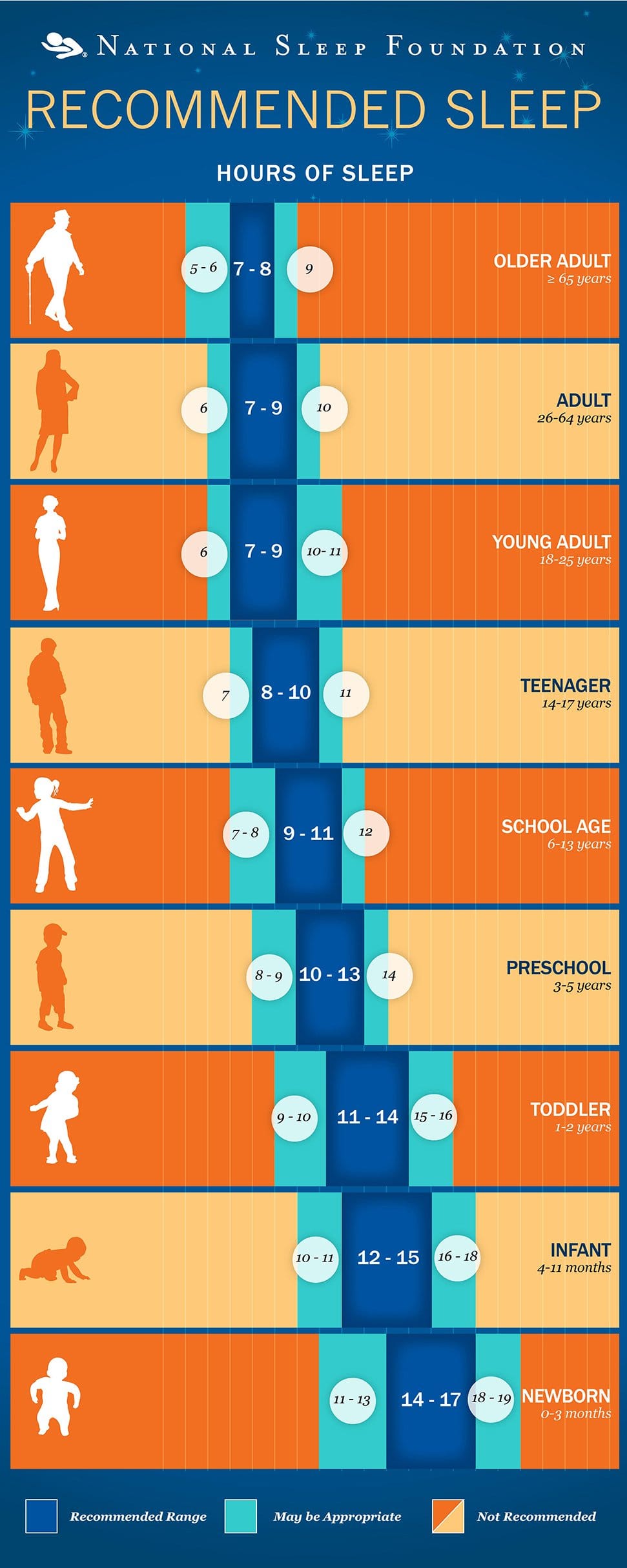It is said that people spend nearly a third of their lives sleeping. That is, however, based on the idea that people average about 8 hours of sleep every night and can be misleading. During our lives, we’ll go through different stages where will need anywhere from 17 to just 7 hours of sleep. Before we dip into the details, let’s examine why we need a good night’s sleep.
The amount and quality of sleep determines how productive you’ll be the following day. It is essential if you want to grab the next day with the speed, energy and freshness you are capable of when in optimal condition.
Not getting enough sleep at night can be nasty for our mental and physical well-being. Studies have showed that people who continuously sleep less than 7 hours per night are slower to react and show marked signs of decreased cognitive functioning. It also can affect how well you think, react, work, learn, and get along with others. Furthermore, over time the effects of chronic lack of sleep add up, leading to further health issues, like higher risk for diabetes, obesity, and other health disorders. In fact, people getting less than 7 hours of sleep are more likely to die earlier than those who average 8 or more hours of sleep each night.
There’s no shortage of studies or information on the topic of sleep and today we cover some interesting findings on how much of it you actually need. As we grow up, the different stages of our lives factor in heavily and affect the amount of sleep we should aim to get. Below is the general breakdown of how many hours of sleep you need per night, according to the National Sleep Foundation:
0-3 months old (newborns) – Between 14 and 17 hours each night
4-11 months old (infants) – 12 to 15 hours
1-2 years old (toddlers) – 11 to 14 hours
3-5 years old (preschools) – 10 to 13 hours
6-13 years old (adolescents) – 9 to 11 hours
13-17 years old (teens) – 8 to 10 hours
18-25 years old (young adults) – 7 to 9 hours
26-64 years old (adults) – 7 to 9 hours
65 + (seniors) – 7 to 8 hours
How to notice when you’re lacking sleep
Sleep deficiency can lead to various health issues, symptoms signify a change going on in your body and your need to do something about it. The most common symptoms of sleep deficiency in people are:
- Weight gain;
- Lack of energy – you feel the need a lot of caffeine pass through your day;
- Lack of concentration and memory – not as productive as you think you were?
- Feeling constant fatigue and sleepiness during the day;
- Feeling angry and impulsive, having mood swings, being depressed, or lack motivation can all be contributed to sleep deprivation.
How to prepare your mind and body for a good night’s sleep
Here are some neat tips in order to rest well even when sleeping less than the recommended hours. These pre bed tricks will relax all your senses and prepare you for your much needed sleep:
- Try to keep your body in a good shape by exercising and find a constructive way to release the energy you intake daily. It will make you feel good about yourself and allow you to sleep well at nights;
- Make sure your pillow and mattress are comfortable for you. It’s necessary to feel soft and relaxed once you lay on the bed to unwind mentally and avoid back or neck pains throughout the next day;
- Develop a bedtime routine – reading a book in bed or something else that starts inviting and animating but slowly puts you to sleep;
- Avoid gaming or watching intensive, adrenaline inviting TV-shows before bed and don’t try to fall asleep with your TV on;
- Obviously, avoid drinking caffeinated drinks or alcohol prior to bed. This will leave you feeling restless even though you’re sleeping and can also wake you up during the course of the night.


